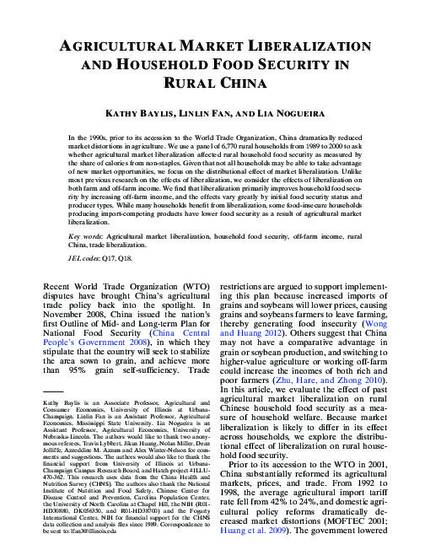
Article
Agricultural Market Liberalization and Household Food Security in Rural China
American Journal of Agricultural Economics
(2018)
Abstract
In the 1990s, prior to its accession to the World Trade Organization, China dramatically reduced market distortions in agriculture. We use a panel of 6,770 rural households from 1989 to 2000 to ask whether agricultural market liberalization affected rural household food security as measured by the share of calories from non-staples. Given that not all households may be able to take advantage of new market opportunities, we focus on the distributional effect of market liberalization. Unlike most previous research on the effects of liberalization, we consider the effects of liberalization on both farm and off-farm income. We find that liberalization primarily improves household food security by increasing off-farm income, and the effects vary greatly by initial food security status and producer types. While many households benefit from liberalization, some food-insecure households producing import-competing products have lower food security as a result of agricultural market liberalization.
Keywords
- Agricultural market liberalization,
- household food security,
- off-farm income,
- rural China,
- trade liberalization.
Publication Date
2018
Citation Information
Kathy Baylis, Linlin Fan and Lia Nogueira. "Agricultural Market Liberalization and Household Food Security in Rural China" American Journal of Agricultural Economics (2018) Available at: http://works.bepress.com/kathy_baylis/85/
